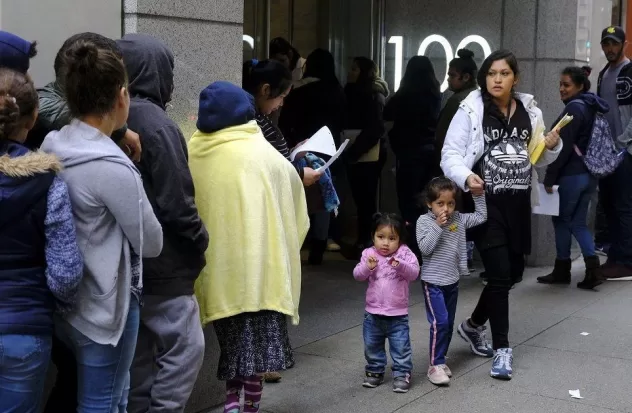MIAMI — The number of cases in the courts of immigration of Florida continues to rise, it is the state that occupies first place in stuck files. The figure in March stands at nearly half a million unsolved cases, according to the latest data from the Transaction Records Information and Access Center (TRAC), a data collection, research and distribution organization at Syracuse University.
At the national level, the number of backlogged cases in cut It rose to 3,363,667 until March, almost a million more than 9 months ago; and almost 300,000 more cases compared to the month of January. The figure has a tendency to continue growing due to the immigrant wave that affects the southern border.
The state of Florida ranks first for the most backlogged cases in immigration courts with 494,500. In nine months the number of cases rose to more than 120,000. In July the accumulated files were 376,240. The majority correspond to the city of Miami with 283,793.
The nationalities with the highest number of asylum cases in Miami are: Cuba, Haiti, Venezuela, Nicaragua, Guatemala, Colombia, Honduras, Mexico, Brazil, Peru, Chile and Russia.
The second state with the most cases stuck in immigration courts is Texas, with 465,300. California, New York and Illinois follow.
The current situation makes processing times increasingly slower. There are places where migrants who have requested asylum must wait up to 10 years for their first appointment before a judge.
Until now, each judge has an average of more than 4,595 assigned cases, which exceeds the human and administrative capacity in each jurisdiction. Currently the number of Immigration judges is 732, who are appointed to the 64 courts that exist in the country.
Immigration chaos is hitting large cities like NY, not only because of the lack of spaces to house hundreds of thousands of immigrants who arrive daily and the economic burden that providing them with free services represents; Added to this crisis is the wave of violent crimes at the hands of immigrants and the presence of the criminal gang the Tren de Aragua, whom the Federal Bureau of Investigation (FBI) points out, would be behind the wave of violent crimes.



